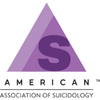AAS Rejects Coercive Mental Health Policies That Put Lives at Risk
Posted on
The American Association of Suicidology (AAS) began more than 55 years ago with a simple but profound belief: suicide is preventable. But preventing suicide takes more than punitive policies or forced institutionalization. It takes trust. It takes care. And above all, it takes listening to the people most affected.
Last week’s Executive Order, “Ending Crime and Disorder on America’s Streets,” marks a dangerous shift in national mental health policy. Although framed as a public safety initiative, the order promotes the involuntary hospitalization of individuals experiencing homelessness, mental illness, or substance use disorders. Instead of building on decades of research supporting effective alternatives, it diverts federal funding away from community-based, harm-reduction, and housing-first approaches.
Let us be clear: this is not suicide prevention.
Coercive treatment does not equal care. It causes trauma. And for people already navigating systems that have failed them—especially Black, Brown, LGBTQIA+, disabled, and low-income communities—coercion deepens distrust. It increases the risk of suicide rather than reducing it.
The research is unequivocal:
- Involuntary psychiatric care leads to higher suicide rates after discharge (Jordan & McNeil, 2020).
- Punitive or carceral approaches fuel shame, isolation, and hopelessness—core drivers of suicide risk.
- Community-based, voluntary, and culturally responsive care saves lives (Grande et al., 2022).
This recent Executive Order does not advance prevention. It prioritizes control. It punishes localities that use harm reduction strategies, despite their proven role in reducing suicide among people who use drugs. It funds law enforcement instead of licensed mental health professionals. It offers no guarantees of follow-up care, continuity, or support for social determinants of health—such as housing, safety, or income—that protect against suicide.
What message does this send to people in crisis? That they are threats, that their pain is criminal, and that their freedom depends on compliance?
AAS stands with clinicians, researchers, attempt and loss survivors, advocates, and frontline responders who believe in a more just path—one that treats mental health not as a liability to be managed, but as a human right to be protected. One that centers choice, dignity, and access.
We urge policymakers to reject coercive mental health policy and instead adopt trauma-informed, evidence-based approaches that reduce risk and expand access to care. This includes:
- Investing in peer-led crisis services, mobile response teams, and community mental health centers.
- Reinstating funding for housing-first models that lower both suicide and overdose rates.
- Expanding access to 988 and other crisis lines which support all members of communities in need of these vital life-saving services.
- Strengthening protections for high-risk groups, including LGBTQIA+ youth, veterans, and people living with chronic illness or trauma.
But we must also affirm what works. Most people who experience suicidal thoughts do not want to die—they want relief. When they receive voluntary, compassionate support–at the right time, and in a way that meets their needs–they often survive and begin to heal.
Suicide prevention must ensure that people have access to the services and supports their need to keep themselves safe on their own terms—with tools, relationships, and systems they can trust. That is the future AAS fights for: one where asking for help is safe, and help is truly supportive. Where public health begins with trust. And where every person in crisis is met with care, not control.
Coercion is not care, and control is not compassion. We urge the Administration to reject fear-based policy and stand with communities calling for dignity, choice, and evidence-based care. Anything less is not prevention—it’s abandonment, and lives are at stake.
Related Blogs
Statement in Opposition to the U.S. Department of Education&...
The American Association of Suicidology (AAS), the nation’s largest and oldest suicide prevention membership organization, strongly opposes the U.S. Department of Education’s proposal to remove nursing, social w...
American Association of Suicidology Announces Winners of the...
WASHINGTON – Dec. 22, 2025 – The American Association of Suicidology (AAS) is proud to announce the winners of the 2025 Paul G. Quinnett Lived Experience Writing Competition. This annual competition, he...
Honoring the Life and Legacy of Jody Gottlieb
WASHINGTON – Oct. 3, 2025 – It is with profound sadness that we share the unexpected passing of Jody Gottlieb due to an unexpected medical condition. Jody was not only an accomplished professional, but a...
